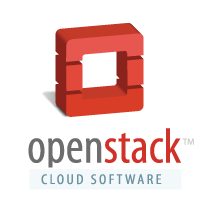 What if contributing to OpenStack was made a lot easier by a few days of training? You could get this training at Upstream University, which was created shortly after the OpenStack design summit, in April 2012, with this sole goal of improving developers’ contribution skills. Upstream University has since coached new OpenStack contributors, from eNovance and Cloudwatt, developers; for the kernel Linux and many others.
What if contributing to OpenStack was made a lot easier by a few days of training? You could get this training at Upstream University, which was created shortly after the OpenStack design summit, in April 2012, with this sole goal of improving developers’ contribution skills. Upstream University has since coached new OpenStack contributors, from eNovance and Cloudwatt, developers; for the kernel Linux and many others. 
To celebrate its first year, Upstream University is organizing a session in advance of the next OpenStack summit, in Portland. If you can fly in two days ahead of the event to spend the weekend improving your OpenStack contribution skills, please consider submitting an application to attend the workshop. This a one-time offer for free training.
 Contributing to Free Software is easy. So easy, in fact, that we forget that it’s worth training for it. It’s just like running, which is also easy, but which you’d better train for, if your plan is to go to the Olympics or get sponsored. If you want to be an efficient and productive Free Software contributor, you need to be familiar with certain strategies and have certain communication skills. We are not all born hackers like Richard Stallman, but we can get inspiration from him. With his active support, Upstream University has designed a unique training program that can benefit all developers.
Contributing to Free Software is easy. So easy, in fact, that we forget that it’s worth training for it. It’s just like running, which is also easy, but which you’d better train for, if your plan is to go to the Olympics or get sponsored. If you want to be an efficient and productive Free Software contributor, you need to be familiar with certain strategies and have certain communication skills. We are not all born hackers like Richard Stallman, but we can get inspiration from him. With his active support, Upstream University has designed a unique training program that can benefit all developers.
While a lecture about Free Software contribution could be entertaining or even inspirational, there is no substitute for learning by example. In this workshop, each student enters the training program with an actual bug or blueprint from the OpenStack bug tracker—a problem that matters to them, either because their company has a deadline or because they like to solve problems. They are then assigned a simple task: to get their work accepted upstream.
This is something that wouldn’t be possible with traditional training formats, as it often takes weeks for a contribution to get accepted. Instead the curriculum is divided in two parts: one live and one online. The first two days of training are live: a mentor explains how to approach the contribution, and advises the students on the best strategies. The highlight of the training is a simulation of agile methods applied to upstream contribution, involving a lot of legos. The picture below was taken during last week’s training for Cloudwatt developers and the kanban is visible on the paper board in the photo below. The result was a French Riviera village with a beach, a café, and waves: a great source of inspiration when the temperature outside is below zero.

The online mentoring that follows the live part is where the actual learning experience happens. The student meets with the mentor every other day to explain the progress of their contribution and discuss how to improve it. It is not only about making it easier for the developer to resolve problems, ranging from keeping a patch minimal to kindly asking a reviewer for attention; it’s also about making life upstream easier, because contributions with a higher quality standard mean less work for everyone else.
Although Upstream University was originally designed to help companies improve their contribution skills and reduce the cost of going it alone, it was successfully integrated into the university at ULCO in 2012. OpenStack has many low-hanging fruits that appeal to its students, who’ve all become registered contributors during the online mentoring sessions. Two universities will have Upstream University courses focused on OpenStack, in 2013, and we are eager to provide training material if another opportunity presents itself.

